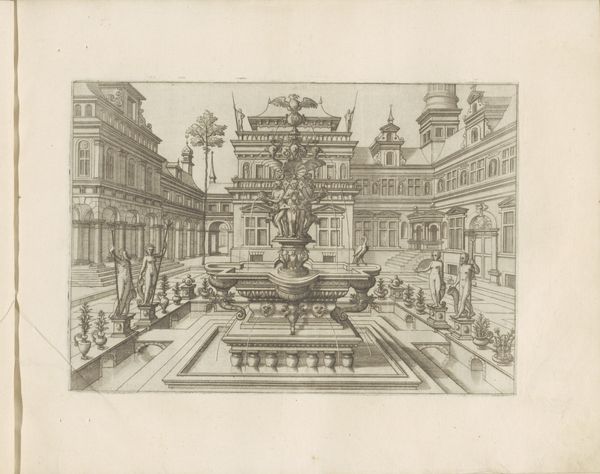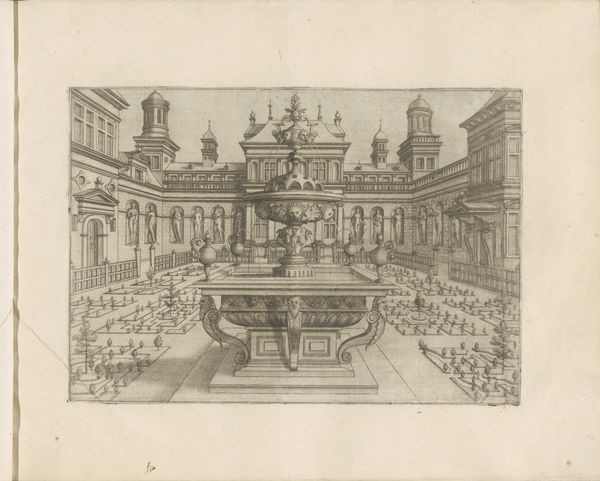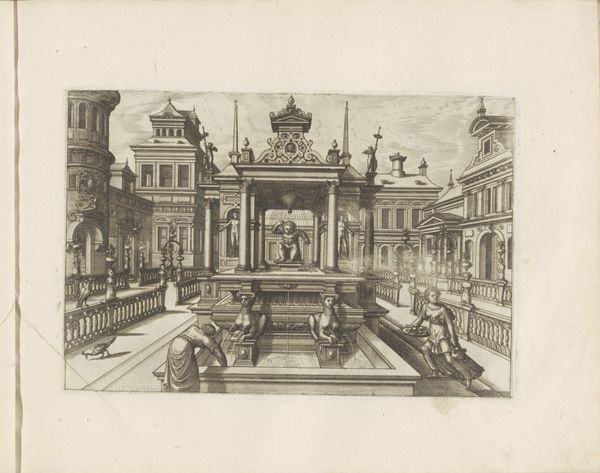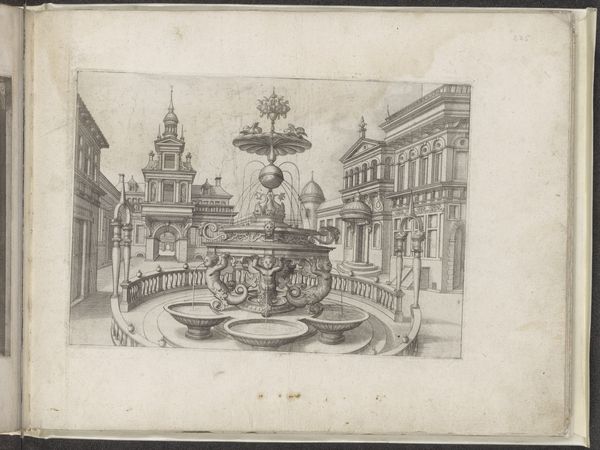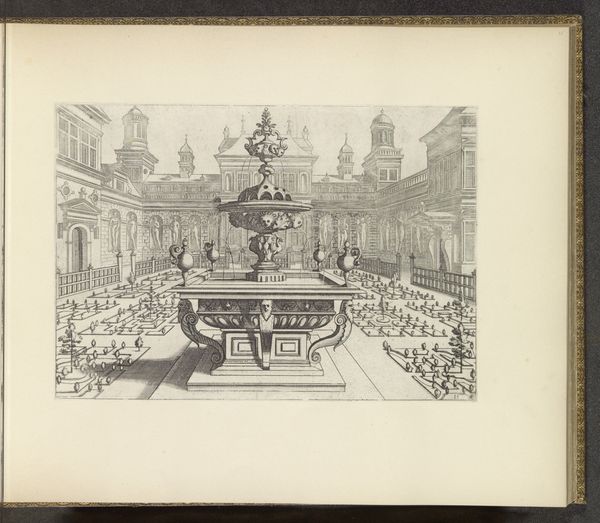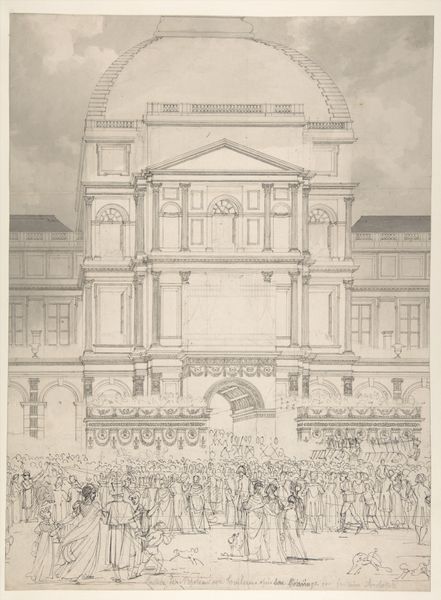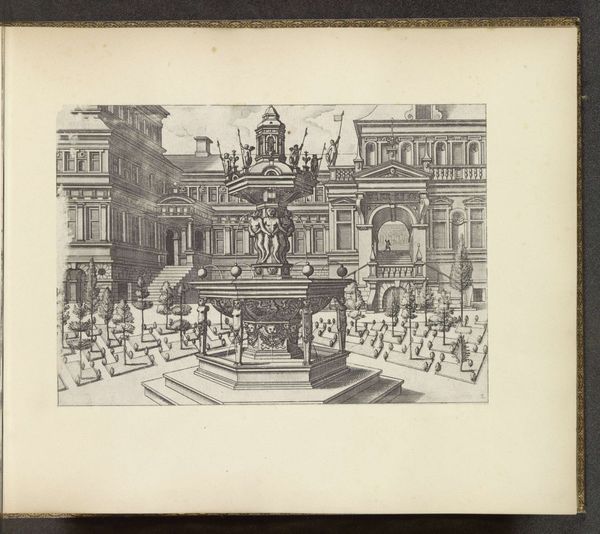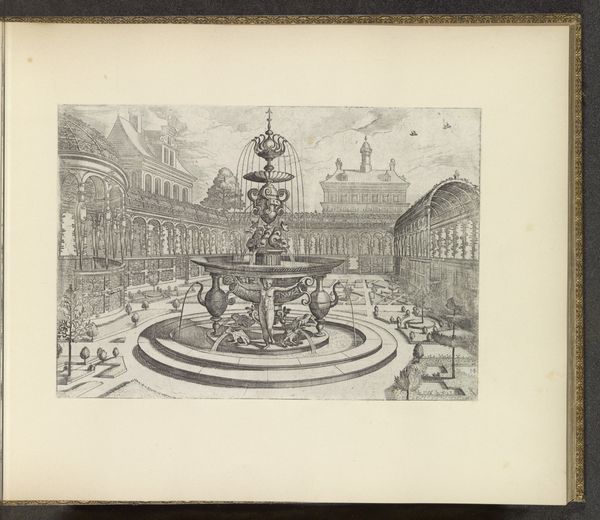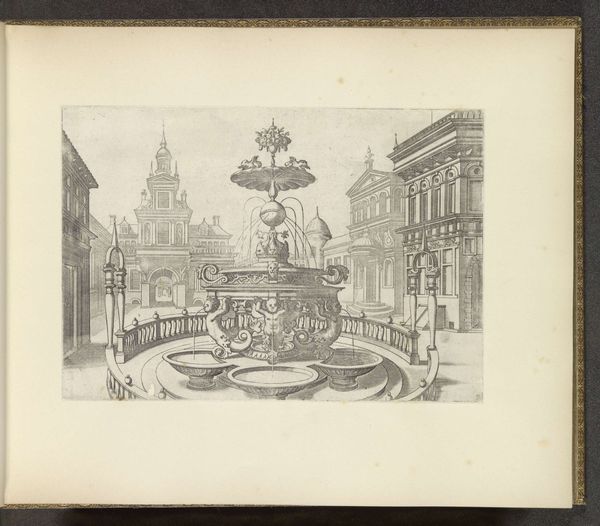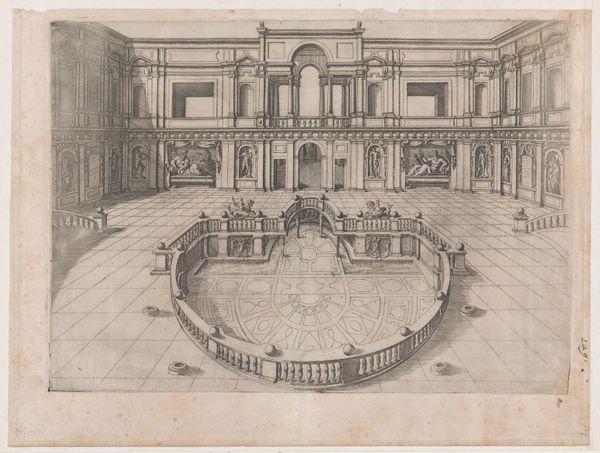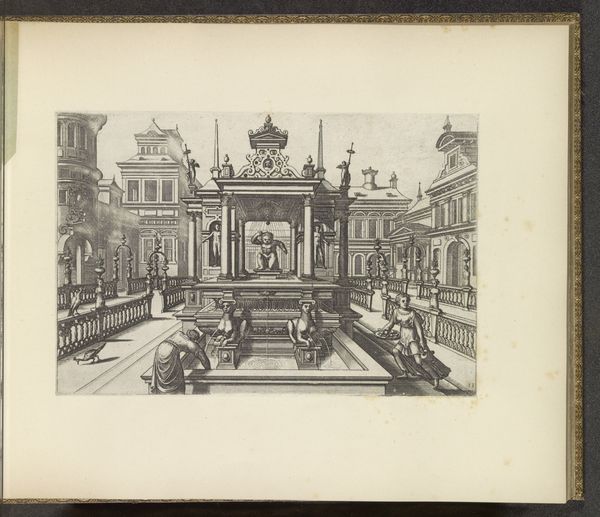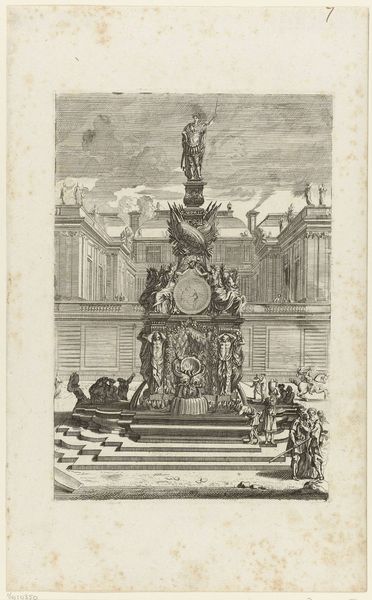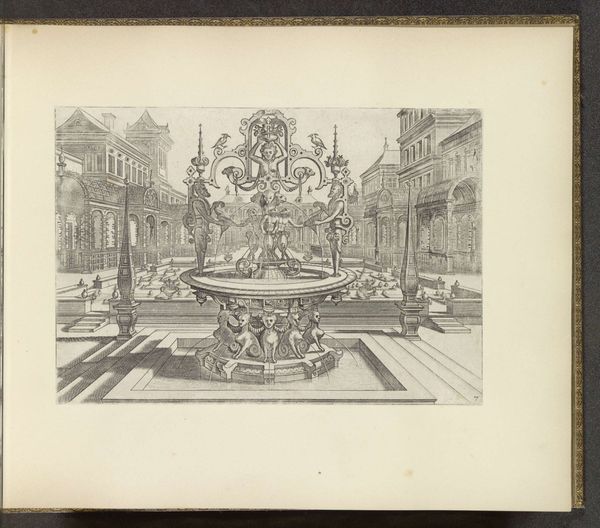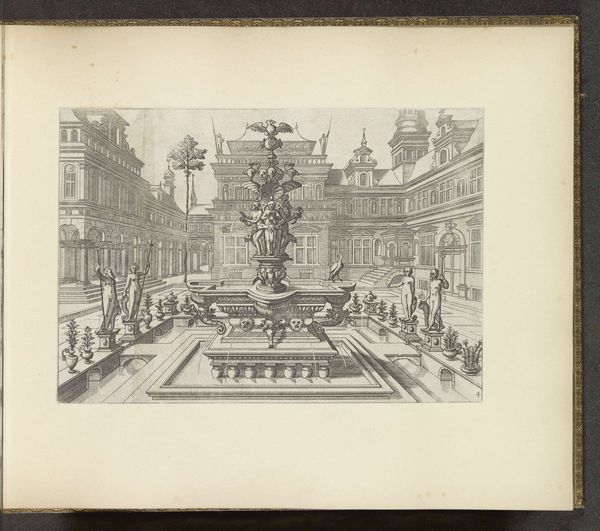
drawing, pen
#
drawing
#
landscape
#
mannerism
#
geometric
#
pen
#
cityscape
#
history-painting
Dimensions: height 176 mm, width 250 mm
Copyright: Rijks Museum: Open Domain
This print of a palatial garden, complete with hexagonal fountain, was made by Joannes van Doetechum, probably in the late 16th century. The key to understanding its appeal lies in its method of production: etching. The image began as a metal plate, likely copper. Lines were incised into its surface with acid, allowing for incredibly fine detail. Look closely, and you can see how Doetechum used this technique to evoke not only the architecture and landscaping of this imaginary garden, but also the atmospheric effects of light and shade. The printmaking process also allowed for relatively quick and easy reproduction. This was especially valuable to the artist as it granted him the means to widely disseminate his design, acting as a promotional tool to showcase his creative skills. The precise lines of the etching, produced through mechanical means, elevated what might have been a mere landscape into a demonstration of skill, and an advertisement of the pleasures available to a monied elite.
Comments
No comments
Be the first to comment and join the conversation on the ultimate creative platform.
